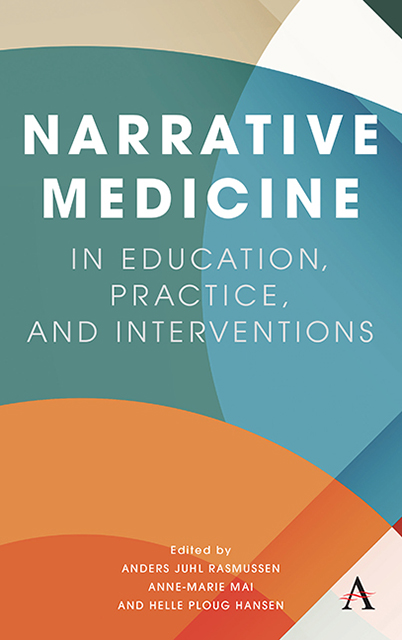Chapter 6 - What’s with the Drinking? Narratives about Alcohol Abuse
Published online by Cambridge University Press: 08 June 2023
Summary
This chapter takes as its starting point a research project at the University of Southern Denmark that examines the narratives of drinkers about how the development of alcohol dependency has come about and turned into a problem. The project shows how patterns in narratives about symptoms and suffering can be indications of more general narrative structures and how this has so far resulted in the identification of five “master narratives.” These master narratives can be regarded as fundamental narratives that people with alcohol problems will draw upon when they need to explain the causes of their own alcohol misuse, and they also act as resources that practitioners can make use of. By listening to and recognizing these general but nevertheless significant narratives, practitioners can acquire what might otherwise be a rare insight into how individuals understand their own alco-hol consumption, and they are able to offer the best and most empathetic treatment. The aim of this chapter is to emphasize how charting such mas-ter narratives about alcohol consumption underlines the need to involve narrative skills in treatment.
When we humans set out to understand the world, and ourselves, and when we have to communicate our understanding, one of the ways we do it is by telling stories (Hydén, 1997; Brockmeier, 2018). This is where we grasp the sense of things. Stories allow us to picture things for ourselves to understand them and remember. This is also true when we have to define ourselves, for example, as sick or well (Frank, 1995). When we define ourselves as sick, we subject ourselves to a form of diagnosis; in other words, we create a picture for ourselves of the ex-tent to which we have a problem that can be solved by the health service. This is a process that often takes place in conjunction with our surroundings. The first decision we have to make is to determine if the degree to which the condition we Interventionshave or in which we find ourselves is significantly at deviance from the norm or whether it is a normal part of the life that we otherwise lead and see around us (Eisenberg, 1980; Hammer et al., 2012).
- Type
- Chapter
- Information
- Narrative Medicine in Education, Practice, and Interventions , pp. 103 - 118Publisher: Anthem PressPrint publication year: 2022



